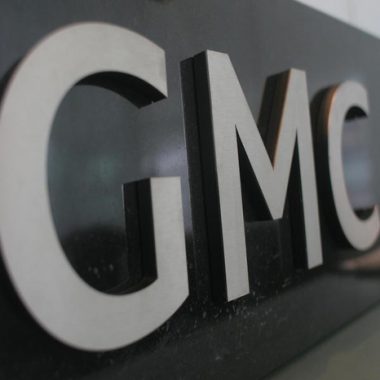GMC wants doctors automatically struck off if convicted for serious crime

The GMC is pursuing the power to automatically strike off doctors who are convicted of serious crimes.
The regulator has said its ‘current powers are deficient in a number of areas’ and that it is pursuing ‘a presumption of erasure from the register where a doctor has been convicted of a serious criminal offence’.
GMC evidence, submitted to the Department of Health and Social Care’s consultation on regulation reform, said: ‘This would better support public protection and public confidence and reduce the impact on patients and witnesses who may otherwise be expected to attend a public hearing.’
Published just days before the High Court ruled in favour of the GMC’s bid to strike off Dr Hadiza Bawa-Garba, the document said this comes as the GMC fitness-to-practise process has seen ‘radical changes’ in the last ten years and ‘will have to continue to evolve in the decades to come’.
The case to strike off Dr Bawa-Garba, against the ruling of the Medical Practitioner Tribunal Servicee (MPTS) led the LMCs Conference to pass a vote of no confidence against the GMC on Friday.
Dr Zoe Norris, the BMA GP Committee’s lead on salaried and sessional GP issues, who proposed the motion at the conference said the suggestion that the regulator could automatically strike off doctors ‘certainly doesn’t reassure’ her.
She told Pulse the reason the Dr Bawa-Garba case caused controversy is because the fitness to practice of a doctor and the criminal justice system ‘were conflated’.
She said: ‘The whole point of the MPTS is to look at the two issues separately. Is every serious conviction the same in the eyes of the GMC, with no possibility of mitigating circumstances?’
She added: ‘Each case needs to be reviewed fairly and independently; blanket rules are unhelpful and seem counter-intuitive given the recent no confidence motion in the GMC.’
Dr Gurmit Mahay, a GP and solicitor in Wolverhampton, said the GMC ‘must always have to undertake the exercise to prove that there is a hand in glove relevance’ between the criminal act and the doctor’s ability to practice, with in an automatic response ‘too crude a mechanism to determine this’.
He said: ‘A sophisticated regulator would want to look at contextuality and the possibility of remediation even in the most difficult of cases.’
A spokesperson for the GMC told Pulse automatic erasure would only apply ‘to cases where a doctor had been convicted of a very serious criminal offence – such as rape, murder or child abuse’.
They said: ‘In some cases doctors have actually asked us to automatically remove them from the register following a conviction, but we are not able to do this. Instead, we have to go through the process of a hearing, which takes time, costs money and may add to victims’ distress.’
The consultation on regulation reform closed on 23 January with submitted evidence still under review by the Department of Health and Social Care.
But the RCGP chair said the GMC ‘must not be given blanket powers’ to strike off convicted doctors.
Professor Helen Stokes-Lampard told Pulse: ‘The role of the GMC is to protect patient safety and this means taking action where a doctor is a risk to his or her patients, including where they have been found guilty of serious crimes.
‘But the regulator must not be given blanket powers that prevents the independent tribunal service from having the opportunity to consider the facts of a case, the likely future risk to patients, and public trust in the medical profession.’
The DHSC would not confirm whether the GMC’s pursuit of automatic erasure is being looked at as part of its ‘rapid review’ into how manslaughter charges are applied to doctors.
Falling confidence in the GMC
The GMC launched their court bid after concluding that the MPTS’s decision to suspend Dr Hadiza Bawa-Garba ‘was wrong’.
She had been convicted by a Crown Court in 2015 of manslaughter, following the death of a six-year-old boy from sepsis.
Dr Bawa-Garba has since decided to appeal the High Court ruling, and is considering appealing the manslaughter conviction too.
GPs have been up in arms over the use of reflections in the trial and have shown solidarity with the junior doctor by sharing their ‘I am Hadiza’ moment with Pulse.
This culminated in LMC leaders declaring no confidence in GMC, and demanding that BMA advises GPs to ’disengage from written reflection in both appraisal and revalidation’ until new safeguards are put in place.
Pulse October survey
Take our July 2025 survey to potentially win £1.000 worth of tokens










